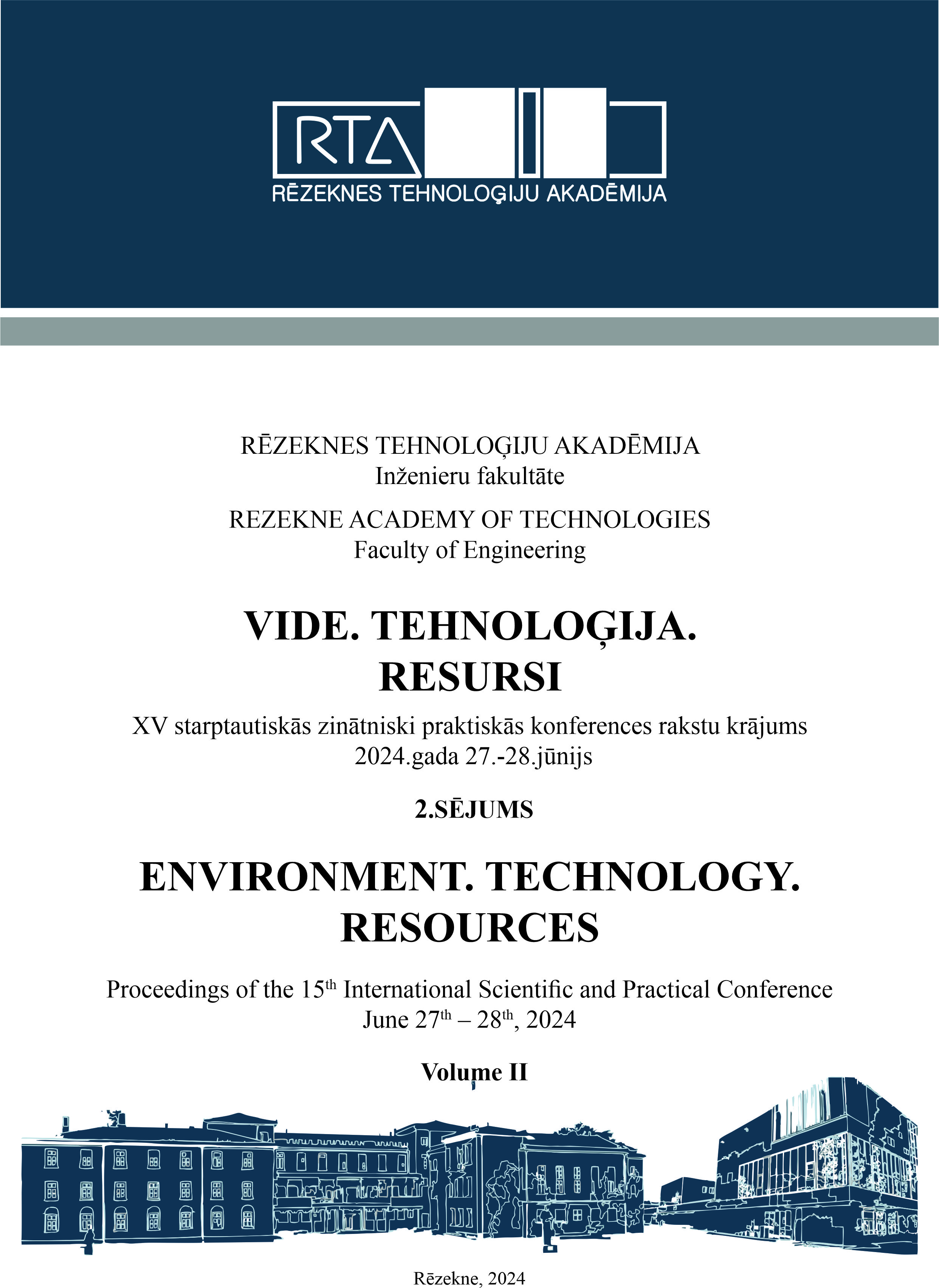LIMITS OF THE USE OF ARTIFICIAL INTELLIGENCE IN LAW – ETHICAL AND LEGAL ASPECTS
DOI:
https://doi.org/10.17770/etr2024vol2.8016Keywords:
artificial intelligence, justice, lawAbstract
The article is devoted to legal and ethical problems pertaining to the use of artificial intelligence (hereinafter – AI) in law. AI solutions are already being applied in some areas of law, and the use of AI will undoubtedly be expanding. There are problems relating to the regulatory framework because AI has no expressly defined legal status and the scope of AI is not clear either. AI could successfully be employed for data processing in certain areas, such as forensic science and criminology, as well as legal proceedings, where AI could assess procedural documents for their conformity with formal requirements, namely as a means of assisting a human, who is a decision maker. Recognising AI’s decision-making ability is extremely challenging. Thus, AI would transform from a means into a subject of law empowered to make decisions about other subjects of law. The existing legislation is not ready to embrace it, and AI’s decision-making ability is related to issues of an ethical nature, considering that decisions about people would be made by a non-human subject.
Downloads
References
Law on State Information Systems. 22 May 2002. [Online]. Available: https://likumi.lv/ta/en/en/id/62324-law-on-state-information-systems [Accessed: January. 21, 2024]
Notariate Law. 09 July 1993. [Online]. Available: https://likumi.lv/ta/en/en/id/59982-notariate-law [Accessed: Jan. 21, 2024]
Convention for The Protection of Human Rights and Fundamental Freedoms. 04 November 1950. [Online]. Available: https://likumi.lv/ta/en/starptautiskie-ligumi/id/649-convention-for-the-protection-of-human-rights-and-fundamental-freedoms [Accessed: Jan. 21, 2024]
On Judicial Power. 01 January 1993. [Online]. Available: https://likumi.lv/ta/en/en/id/62847-on-judicial-power [Accessed: Jan. 21, 2024]
I. Kudeikina and S. Kaija “Problems Relating to Judicial Selection in the Context of Sustainable Development of Society”, European Journal of Sustainable Development (2022), 11, 4, 115-125 ISSN: 2239-5938, pp.120. Doi: 10.14207/ejsd.2022.v11n4p115.
Civil Procedure Law. 01 March 1993. [Online]. Available: https://likumi.lv/ta/en/en/id/50500-civil-procedure-law [Accessed: Jan. 21, 2024]
M. Kozhukhova and M. Zhiyenbayev “Conceptualizing legal culture and legal awareness: meaning and structural components”. SHS Web of Conferences, vol. 55, 02009 (2018) [Online] Available: https://www.shs-conferences.org/articles/shsconf/pdf/2018/16/shsconf_icpse2018_02009.pdf [ Accessed: Jan. 21, 2024]
T.J.M. Bench-Capon “Ethical approaches and autonomous systems” Artificial Intelligence, vol.281, April 2020, 103239. [Online]. Available: https://www.sciencedirect.com/science/article/abs/pii/S0004370219300621 [Accessed: Jan. 21, 2024]
D. Vanderelst and A. Winfield “An architecture for ethical robots inspired by the simulation theory of cognition”, Cognitive Systems Research, vol.48, May 2018. [Online]. Available: https://www.sciencedirect.com/science/article/pii/S1389041716302005 [Accessed: Jan. 22, 2024]
Dabiskās tiesības. [Online]. Available: https://enciklopedija.lv/skirklis/26219 [Accessed: Jan. 23, 2024]
ASV 1776. gada 4. jūlija Neatkarības deklarācija. [Online]. Available: https://www.archives.gov/founding-docs/declaration-transcript [Accessed: 23.01.2024.]
M. Birģelis “Laimes un taisnīguma kolīzija tiesību zinātnē”. Jurista Vārds, 15 February 2021.Available: https://m.juristavards.lv/eseja/278294-laimes-un-taisniguma-kolizija-tiesibu-zinatne/ [Accessed: 23.01.2024.]
R. Suskind “Online Courts and the Future of Justice”. 14 November 2019. Available: https://academic.oup.com/book/41081 [Accessed: 23.01.2024.]
I. Kudeikina and S. Kaija “Legal aspects of using artificial intelligence in cassation proceedings in a criminal and civil process”, PRÁVO – OBCHOD – EKONOMIKA : ZBORNÍK VEDECKÝCH PRÁC, 2021, pp.114-122.
A. Sabreen “Online Courts and Private and Public Aspects of Open Justice: Enhancing Access to Court or Violating the Right to Privacy?” The Age of Human Rights Journal, (20), e7516. Available: https://revistaselectronicas.ujaen.es/index.php/TAHRJ/article/view/7516 [Accessed: 23.01.2024.]
P.Gund, S. Patil, and V. Phalke “INVESTIGATING CRIME: A ROLE OF ARTIFICIAL INTELLIGENCE IN CRIMINAL JUSTICE” The Online Journal of Distance Education and e-Learning, April 2023 Volume 11, Issue 2 [Online] Available: https://www.tojdel.net/?pid=showissue&issueid=278 [Accessed: 23.01.2024.]
José Félix Muñoz‑Soro, Rafael del Hoyo Alonso, Rosa Montañes, Francisco Lacueva “A neural network to identify requests, decisions, and arguments in court rulings on custody” Artificial Intelligence and Law. 9 January 2024. Available: https://link.springer.com/journal/10506 [Accessed: 23.01.2024.]
Law On Forensic Experts. 15 March 2016. [Online] Available: https://likumi.lv/ta/en/en/id/280576-law-on-forensic-experts [Accessed: 23.01.2024.]
I. Kudeikina, M. Loseviča and N. O. Gutorova “Legal and practical problems of use of artificial intelligence-based robots in forensic psychiatry” Wiadomości Lekarskie, VOLUME LXXIV, ISSUE 11 PART 2, NOVEMBER 2021. [Online] Available: https://wiadlek.pl/wp-content/uploads/archive/2021/WLek2021112.pdf [ Accessed: 23.01.2024.]
Eiropas Komisija. Komisijas paziņojums Eiropas Parlamentam, Eiropadomei, Padomei, Eiropas Ekonomikas un Sociālajai komitejai un Reģionu komitejai. Koordinētais mākslīgā intelekta plāns. 2018 [Online] Available: https://eur-lex.europa.eu/legal-content/LV/TXT/HTML/?uri=CELEX:52018DC0795&from=EN [ Accessed: 23.01.2024.]
Latvia AI Strategy Report. 2020. [Online] Available: https://ai-watch.ec.europa.eu/countries/latvia-0/latvia-ai-strategy-report_en [ Accessed: 23.01.2024.]
Eiropas Parlamenta pieņemtie grozījumi COM(2021) 0206 – C9-0146/2021 – 2021/0106 (COD) priekšlikumā Eiropas Parlamenta un Padomes regulai, kas nosaka saskaņotas normas mākslīgā intelekta jomā (mākslīgā intelekta akts) un groza dažus Savienības leģislatīvos aktus, pieņemti: 14.06.2023. [Online] Available: https://eur-lex.europa.eu/legal-content/LV/TXT/?uri=CELEX%3A52021PC0206 [ Accessed: 22.01.2024.]
Ethics guidelines for trustworthy AI. 2019. [Online] Available:https://digital-strategy.ec.europa.eu/en/library/ethics-guidelines-trustworthy-ai [Accessed: 22.01.2024.]
Downloads
Published
Issue
Section
License
Copyright (c) 2024 Inga Kudeikina, Sandra Kaija

This work is licensed under a Creative Commons Attribution 4.0 International License.


